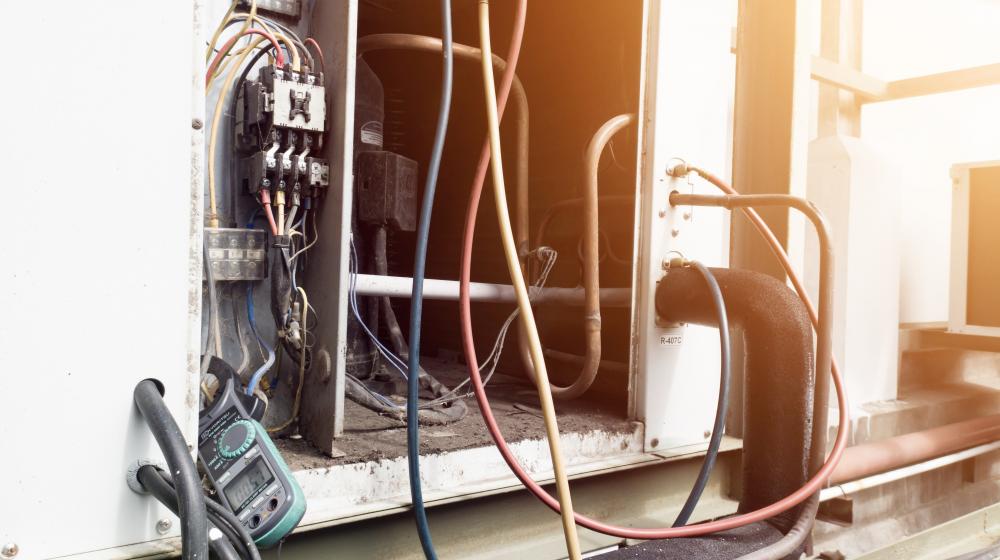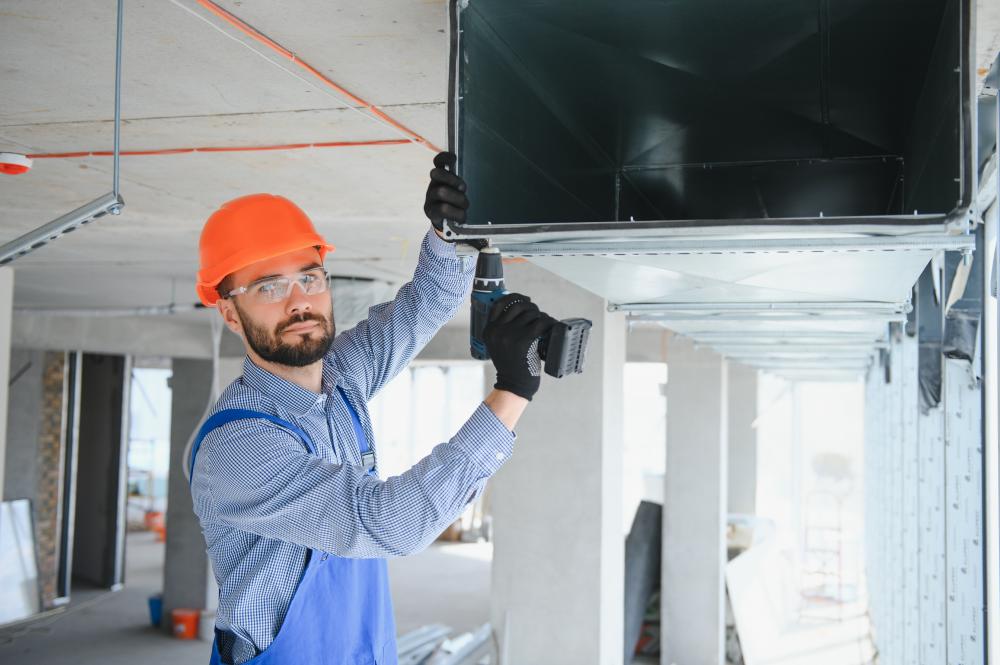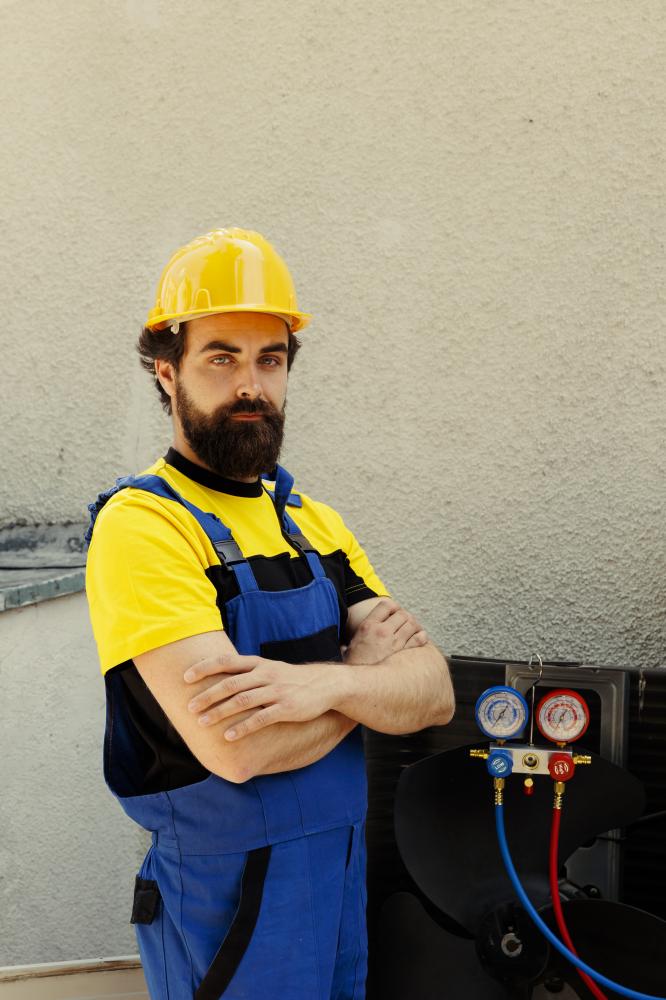
Reduced Effectiveness and What It Means
As a long-time provider of HVAC repair services in San Fernando Valley, we often encounter systems that have lost their efficiency. It's crucial to notice when your unit doesn’t cool or heat as effectively as it once did. This can indicate issues ranging from clogged filters to malfunctioning compressors. If ignored, these problems can escalate, leading to more expensive repairs or even replacement.
Another clear indicator is if the HVAC system runs longer to achieve the desired temperature. Not only does this reduce efficiency, but it also drives up energy bills. If you observe these signs, it may be time to consider how to spot warning signs that your HVAC system needs repair. Our technicians can diagnose these efficiency issues accurately, preventing further damage.
Sounds and Smells: What to Watch For
Unusual noises are often the first audible clue that there might be something wrong with your HVAC system. Rattling noises could suggest loose parts, while a grinding sound might point towards a failing motor. Addressing these symptoms early ensures that minor repairs don't turn into major headaches.
An unexpected odor, especially something burnt or musty, can indicate serious issues. This could be a sign of mold growth or an electrical issue. These problems need immediate attention to ensure safety and system longevity. As professionals dedicated to quality, we emphasize the importance of regular inspections to catch these warning signs early.
Temperature Inconsistencies Throughout Your Home
A common sign that your HVAC system requires repair is inconsistent temperatures across different rooms. If some areas of your home feel significantly warmer or cooler, there might be an air distribution problem. This can result from ductwork issues or a failing blower motor, both of which require professional attention.
Frequently, we find that these inconsistencies can stem from the age of the system. Older HVAC units often require more maintenance to ensure consistent performance. We recommend routine checkups to help identify how to spot warning signs that your HVAC system needs repair.
By monitoring these temperature variations, homeowners can prevent minor issues from developing into significant problems. Our team is equipped with the expertise to address these concerns efficiently.
Spikes in Energy Bills: Cause for Concern
If you notice unexpected increases in your energy bills, your HVAC system may be the culprit. A system that struggles to maintain temperature will consume more energy. This not only impacts your wallet but also your environment. Monitoring energy costs is a practical step in understanding how to spot warning signs that your HVAC system needs repair.
We advise our customers to compare current energy bills with past ones to spot unusual patterns. High energy consumption could indicate underlying mechanical issues that need to be addressed sooner rather than later. Our goal is to help you resolve these issues promptly and economically.
Final Thoughts from an Expert
With years of experience serving the San Fernando Valley, we continually educate our clients on how to spot warning signs that your HVAC system needs repair. Addressing these issues early can save time, money, and hassle in the long run. We pride ourselves on delivering top-quality service and ensuring our customers’ homes remain comfortable all year round.
The key is vigilance. Pay attention to your HVAC system's behavior and don't delay maintenance. Our expert team stands ready to resolve any issues, providing peace of mind and reliable comfort. Trust in our commitment to excellence for all your HVAC needs.

Importance of Regular Maintenance
Ensuring your HVAC system runs smoothly is crucial for energy efficiency and longevity. Regular check-ups can prevent unexpected breakdowns. At San Fernando Valley HVAC, we emphasize consistent maintenance to keep systems in top shape.
One vital aspect of HVAC system maintenance tips is scheduling annual inspections. Our NADCA-certified technicians recommend checking the system twice a year. These evaluations help identify minor issues before they become costly repairs.
Maintaining clean air filters is another key strategy. A clogged filter forces your system to work harder, leading to higher energy bills and potential damage. Simple steps like replacing air filters monthly can enhance overall efficiency.
Seasonal maintenance can also extend the lifespan of your equipment. By addressing wear and tear early, you save on potential repair costs and keep your home comfortable throughout the year.
Harnessing Technology for Efficiency
Consider investing in a smart thermostat. These devices offer remote control, allowing homeowners to adjust settings from anywhere with an internet connection. Smart thermostats optimize temperature settings, saving energy and money.
At San Fernando Valley HVAC, we often recommend ENERGY STAR-certified smart thermostats. They provide detailed energy usage reports, helping you understand your consumption patterns. This insight allows for informed decisions about your HVAC usage.
Technology like smart thermostats is a game-changer for efficient HVAC management. Integration with home automation systems offers convenience and enhanced control, ensuring your home remains comfortable without constant manual adjustments.
Ductwork and Its Impact
Properly sealed ducts are essential for efficient HVAC operations. Leaks can lead to significant energy loss, causing the system to work harder than necessary. Our technicians at San Fernando Valley HVAC can assess and repair ductwork to improve efficiency.
If you're tackling ductwork on your own, use mastic sealant or metal tape instead of traditional duct tape. These materials ensure a longer-lasting seal. Consider insulating ducts in unconditioned spaces like attics to minimize energy loss.
Professional assessment can pinpoint problematic areas. Often, homeowners are unaware of leaks or poorly connected ducts contributing to inefficiency. Addressing these issues can significantly reduce energy bills and improve indoor comfort.
Addressing System Age and Performance
Older systems often struggle with efficiency and may require more frequent repairs. If your HVAC system is over ten years old, consider evaluating its performance. Energy-efficient models can substantially reduce utility costs and offer better reliability.
Replacing an outdated system might seem daunting, but the long-term savings often outweigh initial costs. Newer models boast high SEER ratings, translating to up to 40% monthly savings compared to older units. These savings add up over time, making the investment worthwhile.
Consulting with our experienced technicians can help determine the best course of action. They provide personalized advice on whether repair or replacement is the most effective solution for your specific situation.
Seasonal Tips for Maximum Efficiency
Each season presents unique challenges for HVAC systems. In winter, ensure your system is ready to handle colder temperatures. Inspecting and cleaning the unit before the cold sets in prevents complications.
Summer demands high-efficiency operations to maintain indoor comfort against the heat. Checking refrigerant levels and ensuring condenser coils are clean is crucial. Simple steps like using drapes to block sunlight can complement HVAC efforts effectively.
Regular maintenance and timely inspections make a significant difference. Implementing HVAC system maintenance tips not only prolongs system life but also ensures it operates at peak efficiency year-round.
San Fernando Valley HVAC strives to offer the best service possible. Our commitment to quality and customer satisfaction makes us a trusted partner in your HVAC care journey. Implementing these HVAC system maintenance tips ensures your home remains comfortable and energy-efficient all year long.
Understanding Common HVAC Problems
Every homeowner in San Fernando Valley has, at some point, faced common HVAC problems that require immediate attention. Our years of service have shown that these issues span from air conditioners to heating systems. One prevalent issue is dirty filters, an often underestimated root cause. When filters are clogged, your system struggles, leading to reduced efficiency and increased energy consumption. Maintaining these components regularly can prevent larger issues down the line.
Another frequent concern is thermostat malfunctions. The thermostat acts as your system's command center. When it fails, your comfort may also be disrupted. It's crucial to check the manufacturer's manual for troubleshooting tips. Often, a simple battery replacement can solve the problem. If not, professional intervention might be necessary to restore seamless operation.
Exploring Why Ductwork Matters
In any HVAC system, ductwork plays a vital role in distributing air throughout your home. Unfortunately, issues like leaky ducts can lead to uneven room temperatures and higher energy bills. We, at San Fernando Valley HVAC, understand that identifying these leaks requires experience and precision. Using advanced tools like data logging airflow meters, we diagnose and fix leaks to ensure your home stays perfectly balanced.
Equally important is addressing dirty ductwork. Dust and grime buildup impairs air flow and adversely affects indoor air quality. Regular duct cleaning is a proactive measure. It can eliminate allergens and improve overall system performance. By keeping ducts spotless, you're not just maintaining your HVAC; you're nurturing a healthier living environment.
Preventing Overworked Systems
One of the most troublesome common HVAC problems is an overworked system, often resulting in tripped breakers or blown fuses. This typically occurs when the system operates tirelessly to maintain desired temperatures amidst unfavorable conditions. The root cause often lies in neglected maintenance. By replacing filters and scheduling routine check-ups, you can prevent these draining issues.
Water leaks are another symptom of an overworked system. When condensation pipes clog, water may back up and spill over. This is not only a maintenance concern but also a potential source of damage. Keeping those drain lines clear is crucial to preventing costly repairs and keeping your HVAC system running smoothly.
For us, addressing such challenges goes beyond fixing the immediate issue. It's about educating our clients on proper maintenance, so they can avoid these common pitfalls in the future. Prevention is key to long-term functionality and efficiency.
Tackling Noise and Pressure Issues
Noise complaints are fairly common HVAC problems that we frequently hear about. Banging or rattling sounds often indicate loose parts, while hissing can suggest a refrigerant leak. Addressing these promptly with professional help is crucial. An efficient and quiet system is part of maintaining a comfortable home.
Negative pressure issues can affect both comfort and efficiency. When outside air pressure exceeds that of the inside, your home comfort suffers. Fixing negative pressure requires a detailed assessment of your system's fan speeds and potential vent leaks. Our experts can tackle these trouble spots effectively, ensuring your system functions at its best.
Enhancing System Performance
At San Fernando Valley HVAC, we've seen that simple steps often lead to significant improvements in system performance. Regular cleaning of evaporator and condenser coils is one such example. Clean coils remove heat efficiently, resulting in lower energy costs and better performance. This simple measure can make a tremendous difference.
Regular maintenance remains the cornerstone of avoiding common HVAC problems. Booking a service appointment twice a year—before heating and cooling seasons—ensures your system is ready to face extreme weather. Through these visits, we clean, calibrate, and inspect your system for minor issues before they escalate.
Our commitment to customers is reflected in our thorough approach to HVAC care. We offer expert advice, timely repairs, and innovative solutions to all your HVAC issues. This personalized service is what truly sets us apart in the San Fernando Valley.

How do you know when your HVAC is going bad?
Over time, I've learned to trust my senses when it comes to detecting HVAC issues. If your system starts making strange noises like rattling or grinding, or if you notice unusual odors, such as musty or burnt smells, these are often the first signs of trouble. You might also feel temperature inconsistencies throughout your home or see a spike in your energy bills. These signals can indicate anything from a failing motor to ductwork issues or even mold growth. Regular maintenance can help catch these early, but it's always good to be vigilant and trust your instincts when something seems off.
How do I know when my HVAC needs replacing?
Deciding when to replace your HVAC system can be tricky, but there are a few telltale signs. If your system is over 10-15 years old and frequently needs repairs, it might be time to consider a replacement. Older systems tend to be less efficient, which leads to higher energy bills. A reliable indicator is if your HVAC repair costs are approaching or exceeding 50% of the cost of a new system. This is often referred to as the “5000 rule.” You calculate the cost of a major repair and multiply it by the age of the unit. If that exceeds 5000, a replacement might make more economic sense. Upgrading to a new, energy-efficient model can save you up to 40% on your monthly energy bills!
How do I know if my AC needs repair?
Your AC might be crying out for help if you notice it running longer than usual or if the air it blows isn't as cool as it should be. Sometimes, the air conditioner stops reaching the desired temperature or takes longer to cool the room. Listen for unusual sounds like hissing or banging, or pay attention to any unusual smells. These could indicate refrigerant leaks, faulty compressors, or duct issues. Energy bills that suddenly skyrocket without a change in usage could also point to your AC working inefficiently, requiring immediate attention. Consider scheduling a professional check-up to diagnose and fix these issues before they escalate.
What is the $5000 rule?
The $5000 rule is a handy guideline many of us in the HVAC industry use to help homeowners decide when to repair or replace their system. You take the cost of the repair and multiply it by the age of the system. If the result is greater than $5000, it's generally more cost-effective to replace the unit rather than repair it. For example, if a repair costs $1000 and your system is 8 years old, that's $8000, suggesting a replacement might be the better option. It's a useful measure, but factors like energy efficiency, rebates, and your system's overall condition should also play into your decision. Always consult with a professional for personalized advice tailored to your specific situation.
How do I prevent common HVAC problems?
Prevention is key to keeping your HVAC system running smoothly. Regular maintenance is crucial—think of it like a health check-up for your system. Schedule inspections at least twice a year, especially before the heating and cooling seasons. This helps catch minor issues before they become costly repairs. Keep filters clean by replacing or cleaning them monthly, as clogged filters force your system to work harder. Also, make sure your thermostat is functioning properly; sometimes, a simple battery change can solve issues. Lastly, ensure your ductwork is well-sealed and clean to prevent leaks and improve efficiency. By staying proactive, you can avoid most common problems and extend the lifespan of your HVAC system.
####Resources
- U.S. Department of Energy – Provides information on energy efficiency and renewable energy solutions, including best practices for HVAC systems to optimize home energy use.
- U.S. Environmental Protection Agency – Offers guidelines and resources for improving indoor air quality through proper HVAC maintenance and techniques.
- ENERGY STAR – A government-backed symbol for energy efficiency that offers guidance on selecting energy-efficient HVAC systems and related technologies.
- National Renewable Energy Laboratory (NREL) – Provides research and development insights into advanced HVAC technologies and trends that improve energy efficiency.
- Air-Conditioning, Heating, and Refrigeration Institute (AHRI) – An industry organization that offers educational resources and standards for HVAC professionals and consumers.
